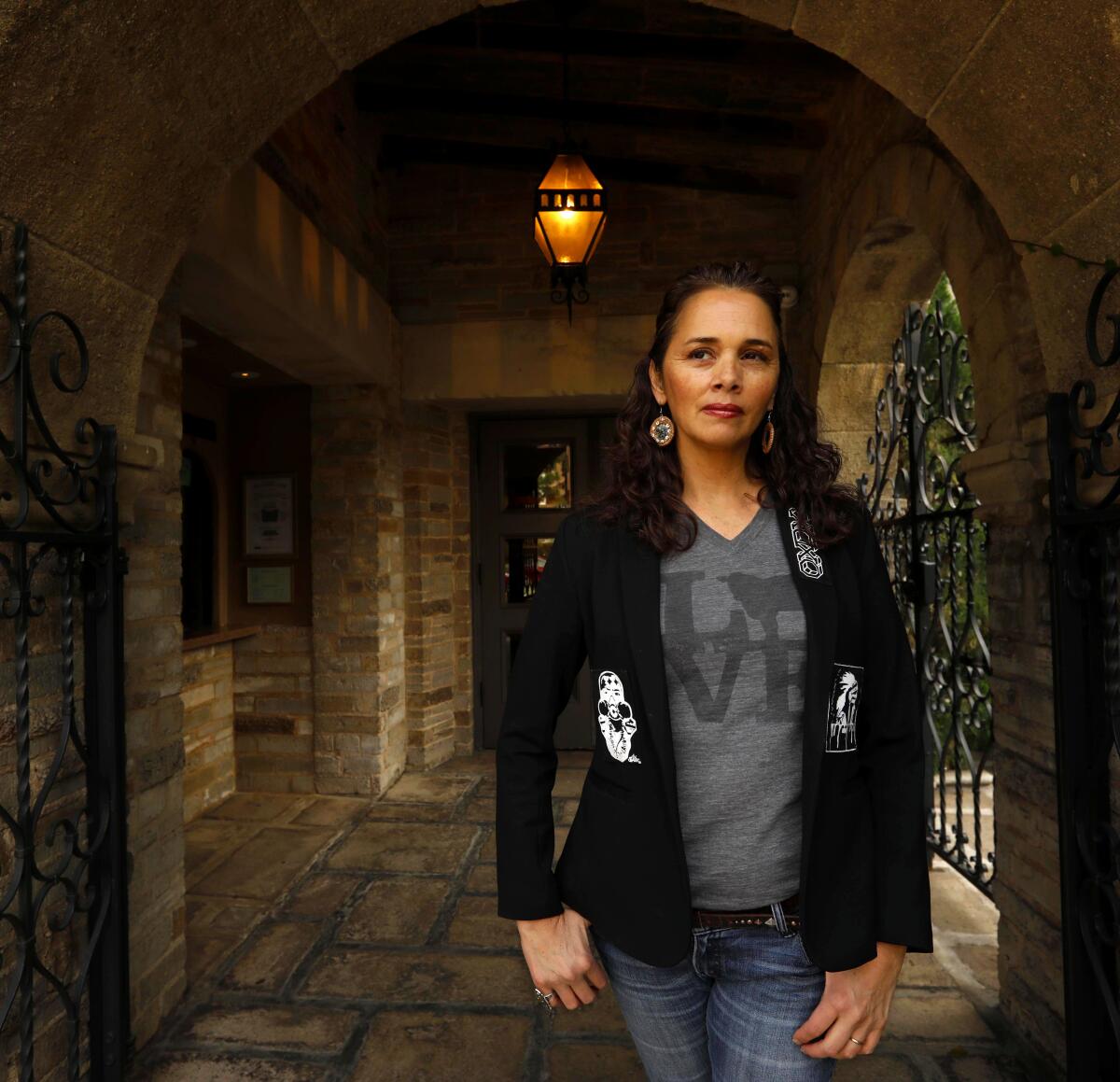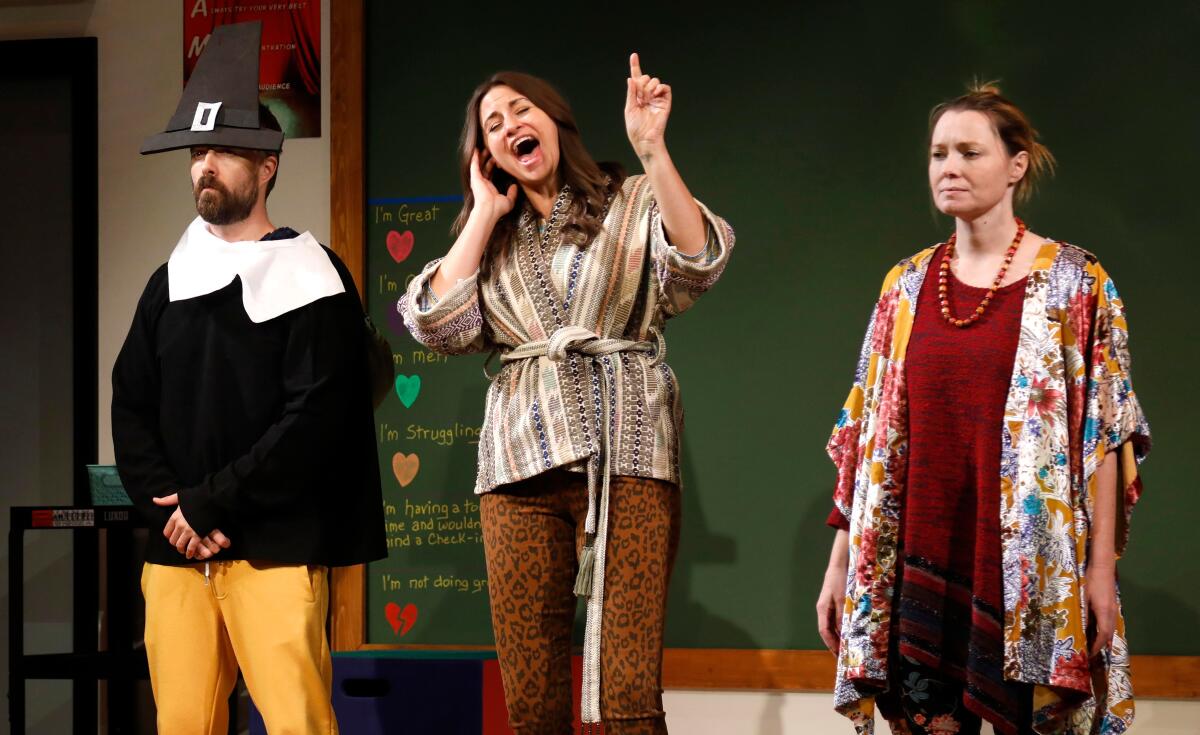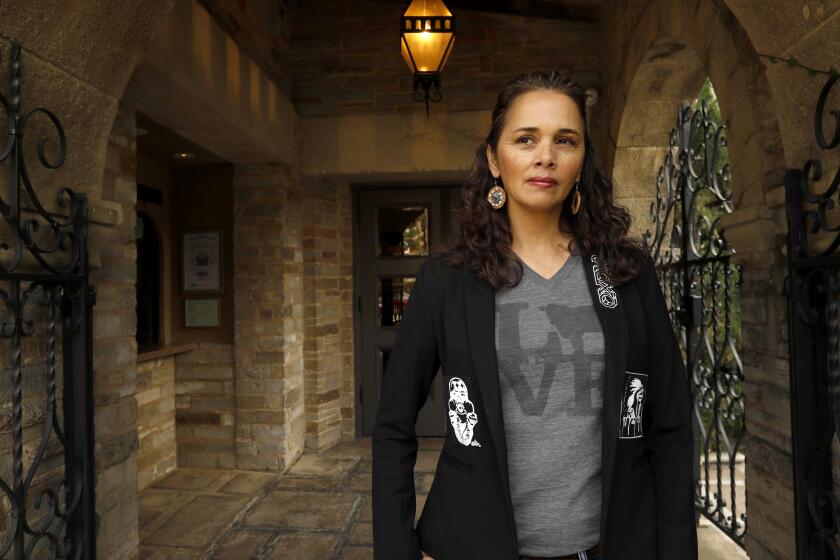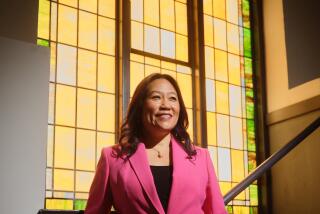Larissa FastHorse, a playwright of indigenous stories, wins a MacArthur grant

Santa Monica playwright Larissa FastHorse ignored several calls from the John D. and Catherine T. MacArthur Foundation, the organization that doles out $625,000 “genius” grants to creatives. She thought the calls were spam.
When the MacArthur Foundation sent a text asking to talk, FastHorse then assumed the foundation wanted to hire her consulting firm, Indigenous Direction, which helps companies and artists create accurate work about Native communities.
“Right now, a lot of funders are looking to — fortunately — start Indigenous funding programs,” FastHorse said.
FastHorse was still in denial after learning she was named a 2020 MacArthur fellow for “creating space for Indigenous artists, stories and experiences in mainstream theater and countering misrepresentation of Native American perspectives in broader society.”
The playwright is one of 21 fellows this year across the arts, education, science, media, law and environmental studies, a MacArthur class that also includes L.A. historian Natalia Molina, New York-based singer and composer Cécile McLorin Salvant and New Jersey-based filmmaker Nanfu Wang. The $625,000 no-strings-attached award will be dispersed over five years.
“My husband and I are both full-time artists and as recently as a couple years ago, we were still below the poverty level here in Los Angeles,” said FastHorse, 49.
Based in Santa Monica, FastHorse has written plays that center the contemporary Indigenous experience in the U.S. for close to 15 years. A dual citizen of the Sicangu Lakota Nation and the U.S., she began her career as a ballet dancer, and after retiring at 30, she began working in film and television.
Larissa FastHorse’s “The Thanksgiving Play” at the Geffen Playhouse finds comedy in adults struggling to stage a culturally sensitive kids pageant.
She turned to theater looking to write more accurate portrayals of Indigenous life.
“I got into playwriting not just to write plays but to change the field,” she told The Times last year. “My gift is as a translator. What I can do well is take Indigenous contemporary experiences and translate them for white audiences because that’s what we have.”
Her first play, “Average Family,” about an urban Native American family and a rural white family on a TV reality show set in the 1840s, premiered in 2007. She has written and choreographed other plays including the 2008 piece “Teaching Disco Square Dancing to Our Elders: A Class Presentation,” produced by the Autry Museum of the American West’s theater company, Native Voices, and the 2017 work “What Would Crazy Horse Do?,” staged at Kansas City Repertory Theatre.
Her satirical “The Thanksgiving Play” skewering the mythology of Pilgrims and Indians finding peace through breaking bread premiered in 2018 at New York’s Playwrights Horizons.

The work was a hit, landing among American Theatre magazine’s annual ranking of the 10 most produced plays. It was staged at the Geffen Playhouse in L.A. and the Lyric Stage Company of Boston for the 2019-20 season.
Although the success of “The Thanksgiving Play” and recent return to film and television writing brought more stability, “We’ve never experienced knowing for five years, our bills are paid. I’ve never had that kind of security, ever,” FastHorse said.
In recent months, FastHorse said she’s been fortunate to have steady work during the pandemic.
In addition to working with theater companies on new work, including a digital piece that will premiere this fall, FastHorse created and is writing a TV movie for Disney and a series for NBC.
Right now, she’s still wrapping her mind around the enormity of the award — “what that means to be able to let go of that constant fear of [not] being able to pay the rent,” FastHorse said.
“I don’t even know how that’s going to impact my work yet.”
Complete list of 2020 MacArthur fellows
Isaiah Andrews, econometrician
Tressie McMillan Cottom, sociologist, writer and public scholar
Paul Dauenhauer, chemical engineer
Nels Elde, evolutionary geneticist
Damien Fair, cognitive neuroscientist
Larissa FastHorse, playwright
Catherine Coleman Flowers, environmental health advocate
Mary L. Gray, anthropologist and media scholar
N. K. Jemisin, speculative fiction writer
Ralph Lemon, artist
Polina V. Lishko, cellular and developmental biologist
Thomas Wilson Mitchell, property law scholar
Natalia Molina, American historian
Fred Moten, cultural theorist and poet
Cristina Rivera Garza, fiction writer
Cécile McLorin Salvant, singer and composer
Monika Schleier-Smith, experimental physicist
Mohammad R. Seyedsayamdost, biological chemist
Forrest Stuart, sociologist
Nanfu Wang, documentary filmmaker
More to Read
The biggest entertainment stories
Get our big stories about Hollywood, film, television, music, arts, culture and more right in your inbox as soon as they publish.
You may occasionally receive promotional content from the Los Angeles Times.












